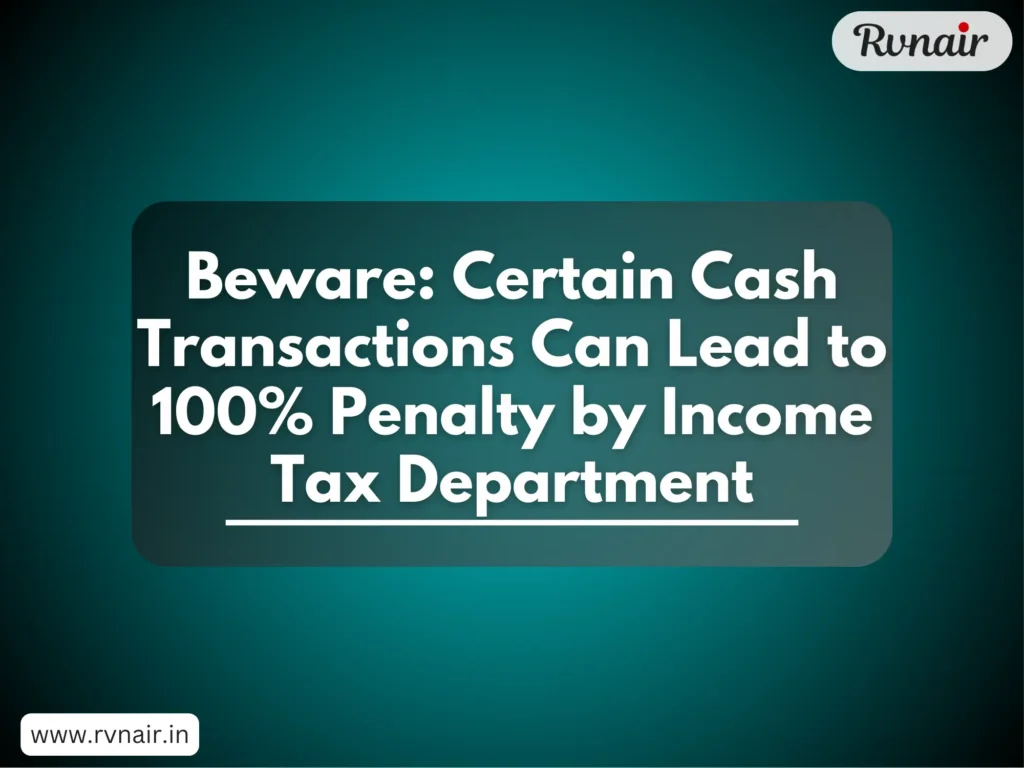
The Income Tax Department has issued a cautionary advisory highlighting that specific cash transactions may attract penalties equal to the amount transacted. This initiative aims to curb the prevalent use of cash in high-value dealings and promote transparency in financial transactions.
Key Provisions and Associated Penalties:
- Acceptance of Loans or Deposits in Cash (Section 269SS):
- Limit: Prohibits accepting loans, deposits, or specified sums in cash amounting to ₹20,000 or more.
- Penalty: Violation results in a penalty equivalent to the amount accepted in cash.
- Repayment of Loans or Deposits in Cash (Section 269T):
- Limit: Restricts repayment of loans or deposits in cash totaling ₹20,000 or more.
- Penalty: Non-compliance leads to a penalty equal to the amount repaid in cash.
- Cash Transactions Above ₹2 Lakh (Section 269ST):
- Limit: Bars receiving ₹2 lakh or more in cash:
- From a single person in a day.
- For a single transaction.
- For transactions related to one event or occasion.
- Penalty: Breaching this provision attracts a penalty equal to the amount received.
- Limit: Bars receiving ₹2 lakh or more in cash:
- Payments for Expenses (Section 40A(3)):
- Limit: Disallows deductions for business expenditure paid in cash exceeding ₹10,000 per day to a single person.
- Implication: Such expenses cannot be claimed as deductions, increasing taxable income.
- Donations in Cash (Section 80G):
- Limit: Disallows deductions for donations made in cash exceeding ₹2,000.
- Implication: Donations above this limit must be made through non-cash modes to qualify for tax deductions.
Recommendations:
- Opt for Digital Transactions: Utilize banking channels, digital payments, or other non-cash methods for high-value transactions to ensure compliance and maintain financial transparency.
- Maintain Proper Documentation: Keep detailed records of all financial transactions, especially those involving significant amounts, to substantiate compliance during assessments.
- Consult Financial Advisors: Seek guidance from tax professionals to navigate the complexities of tax laws and ensure adherence to all regulatory requirements.
Adhering to these guidelines will help individuals and businesses avoid substantial penalties and contribute to a more transparent financial ecosystem.
